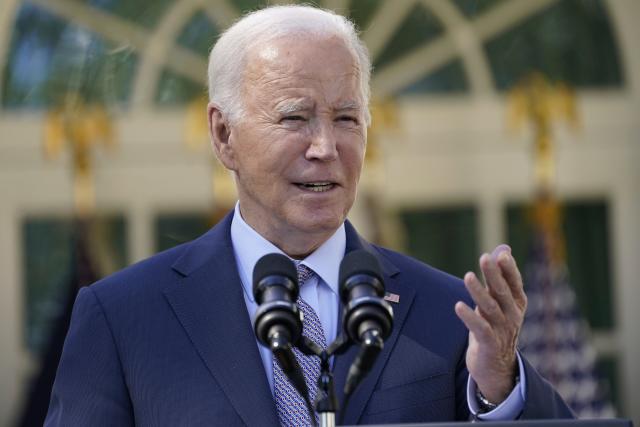
In a significant move, the Biden administration is taking a stand against unpopular “junk fees” with a proposal that demands upfront disclosure of mandatory fees by businesses and discourages banks from imposing excessive charges, including essential services such as checking account balances. As the following election approaches, this initiative is part of the administration’s broader efforts to alleviate financial burdens on voters.
The Battle Against Hidden Fees
As President Joe Biden, a Democrat, seeks a second four-year term, Republicans have been relentlessly critiquing his handling of inflation and the state of the economy. In response, Biden and his administration are doubling down on the fight against “junk fees,” targeting many industries, including banking, hotels, live entertainment, rental housing, and cable services.
The Call for Transparency
President Biden emphasized the need for transparency during his remarks in the White House Rose Garden, stating, “Research shows that without realizing it, folks can end up paying as much as 20% more because of hidden junk fees than they would have paid if they could see the full price upfront and compare it with other options. It’s wrong.”
Biden also commended Airbnb for its practice of offering all-inclusive prices for vacation rentals, setting an example for other businesses to follow.
Economic Stewardship and Public Satisfaction
Taking on these “junk fees” demonstrates President Biden’s commitment to alleviating the financial concerns of the American people. This initiative is significant when many Americans are dissatisfied with his administration’s economic stewardship.
A Comprehensive Approach
This isn’t the first time the Biden administration has tackled the issue of hidden fees. Previously, they proposed a rule requiring airlines to disclose fees upfront, ensuring passengers clearly understand the costs associated with their flights.
Federal Trade Commission’s Role
In a significant development, the Federal Trade Commission (FTC) has proposed a new rule to ban hidden fees across various industries, including car rental agencies, hotels, and event ticket providers. The FTC estimates these hidden fees cost consumers tens of billions annually, mainly in hotel resort fees.
FTC Chair Lina Khan stated, “These junk fees function as an invisible tax that quietly inflates prices across the economy.” The new rule, if enacted, would require businesses to include all mandatory fees in the initial price they quote to customers, making comparison shopping more accessible. Moreover, the FTC could impose monetary penalties on companies that violate the rule and secure refunds for affected consumers.
Consumer Financial Protection Bureau’s Actions
Simultaneously, the Consumer Financial Protection Bureau (CFPB) has issued an advisory opinion, asserting that banks and credit unions should not charge excessive fees to consumers for checking account balances or loan payoff inquiries. This move follows the CFPB’s earlier proposal to reduce credit card late fees, which has sparked controversy within the banking industry. The CFPB’s February proposal aims to limit late payments with an $8 threshold above which card issuers must provide justifications, a significant reduction from the current $30 threshold.
Legal Challenges
It’s worth noting that the Supreme Court is considering a legal challenge to the CFPB’s funding structure initiated by the payday loan industry. The Biden administration contends that this challenge threatens the agency’s viability, emphasizing the need for more robust consumer protection and oversight.
In sum, the Biden administration’s aggressive stance against hidden “junk fees” is part of a broader strategy to alleviate financial stress for Americans and enhance transparency in various industries, setting the stage for significant changes in consumer protection and economic fairness.
Don’t be a silent ninja! Let us know your thoughts in the comment section below.
